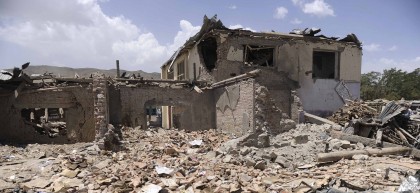Afghanistan Emergency Crisis Appeal
Concern has worked in Afghanistan for 23 years and is committed to continuing our work. Our focus is to work with the most vulnerable communities as the country goes through this extremely difficult period.
Even before the recent unprecedented change in context across the country, 18.4 million people were depending on humanitarian assistance.
- more than one third of the country is facing crisis or emergency levels of food insecurity
- nearly half of all children under five are expected to face acute malnutrition
Forced to flee
Due to the ongoing instability and conflict, the number of civilian casualties and the numbers of newly displaced people continues to rise. The human toll of the conflict is immense, particularly for women and children.
When families flee they often have no choice but to escape quickly, with very few or no possessions and leaving behind the livelihoods upon which they rely. In search of safety, families are left without access to food, shelter and essential items we take for granted.
We had discussed leaving but nothing prepared us for the day our village was attacked. It was a sudden escape. We had just eaten and left our dirty dishes on the floor, grabbed a few items and ran. Rockets and gunshots destroyed our village. It’s been left a warzone.
Concern's response
Concern remains in Afghanistan and is committed to continuing our work with communities as the country goes through this extremely difficult period.
Over the last number of years, our teams have provided emergency Survival Kits containing shelter, cooking and hygiene essentials, as well as vital cash transfers, to help families buy food and other necessities.
We are currently assessing the impact of the renewed insecurity/political context on our programmes and the populations that we have been working with.
*Names have been changed for safety and security reasons.
Our impact in 2023
people reached through our emergency response
people reached through our health interventions
people reached through our livelihoods programmes
